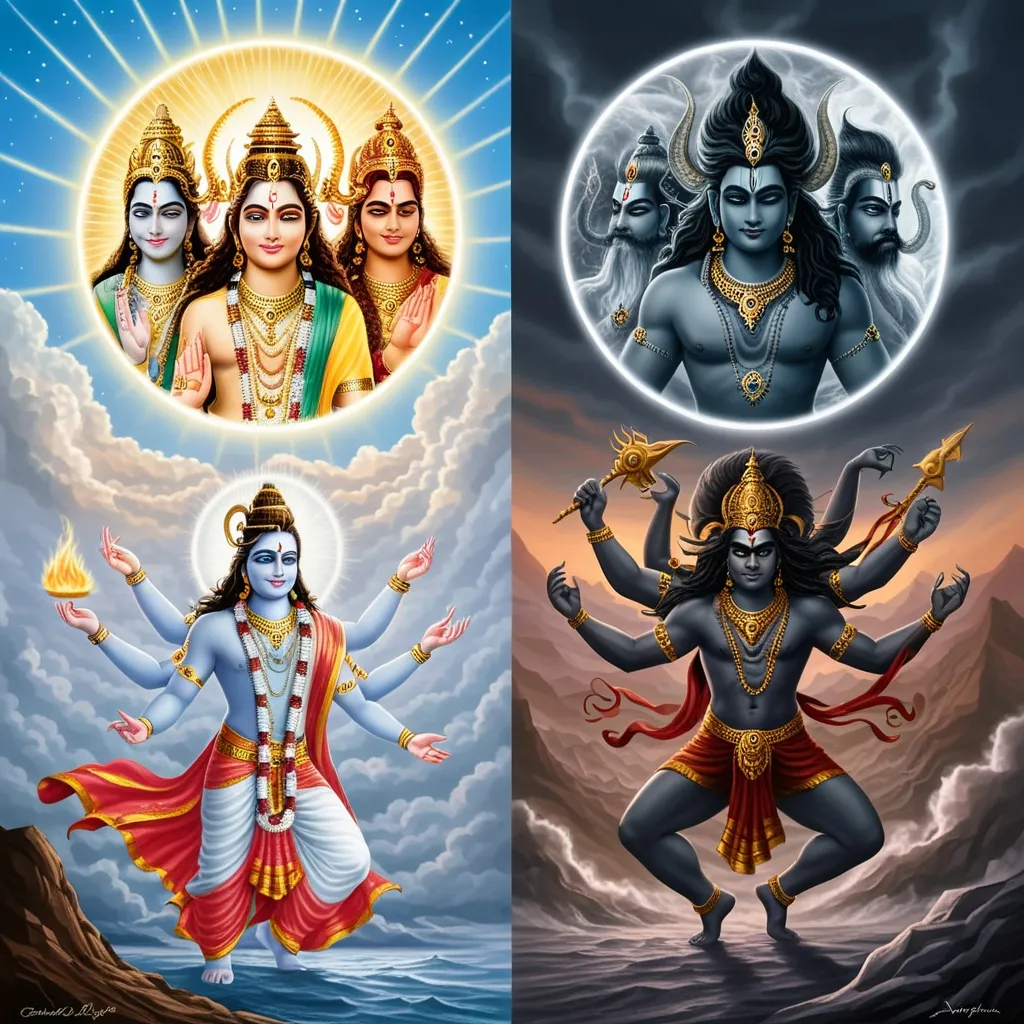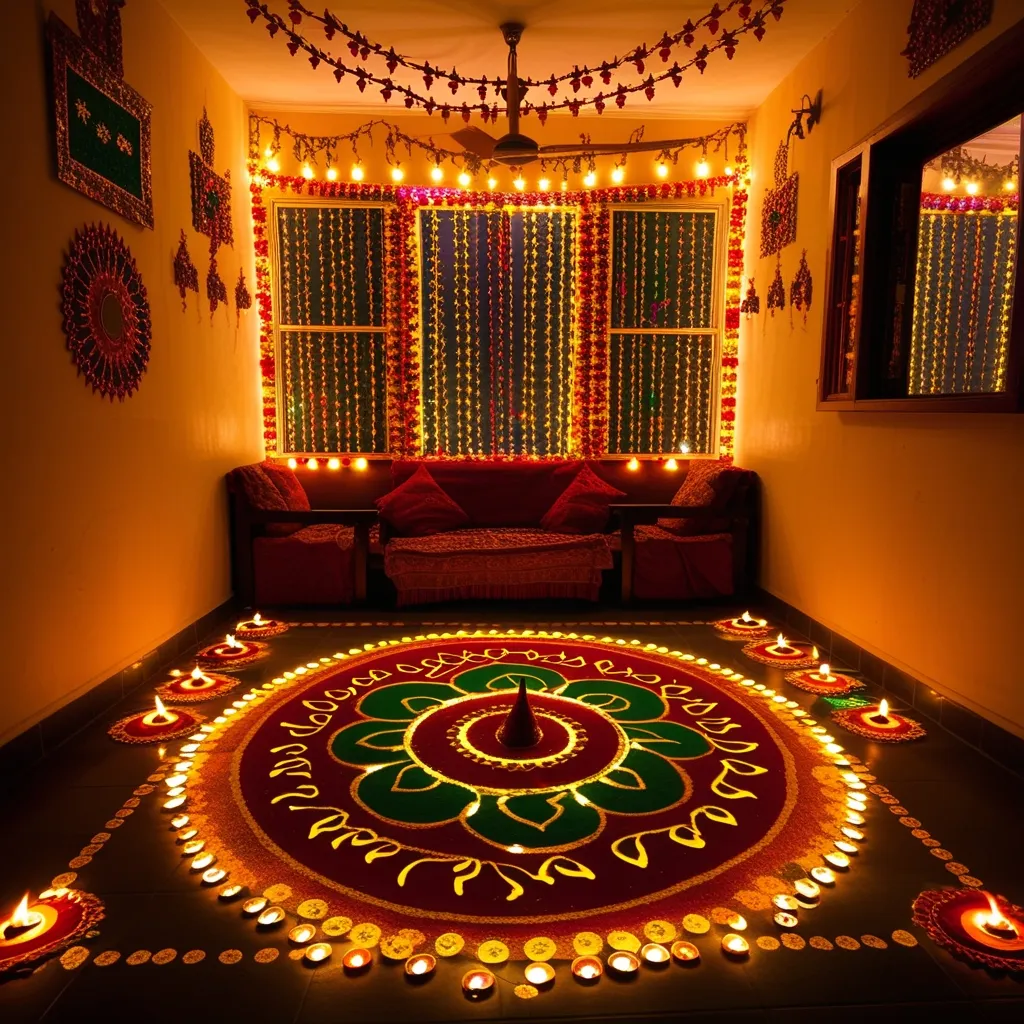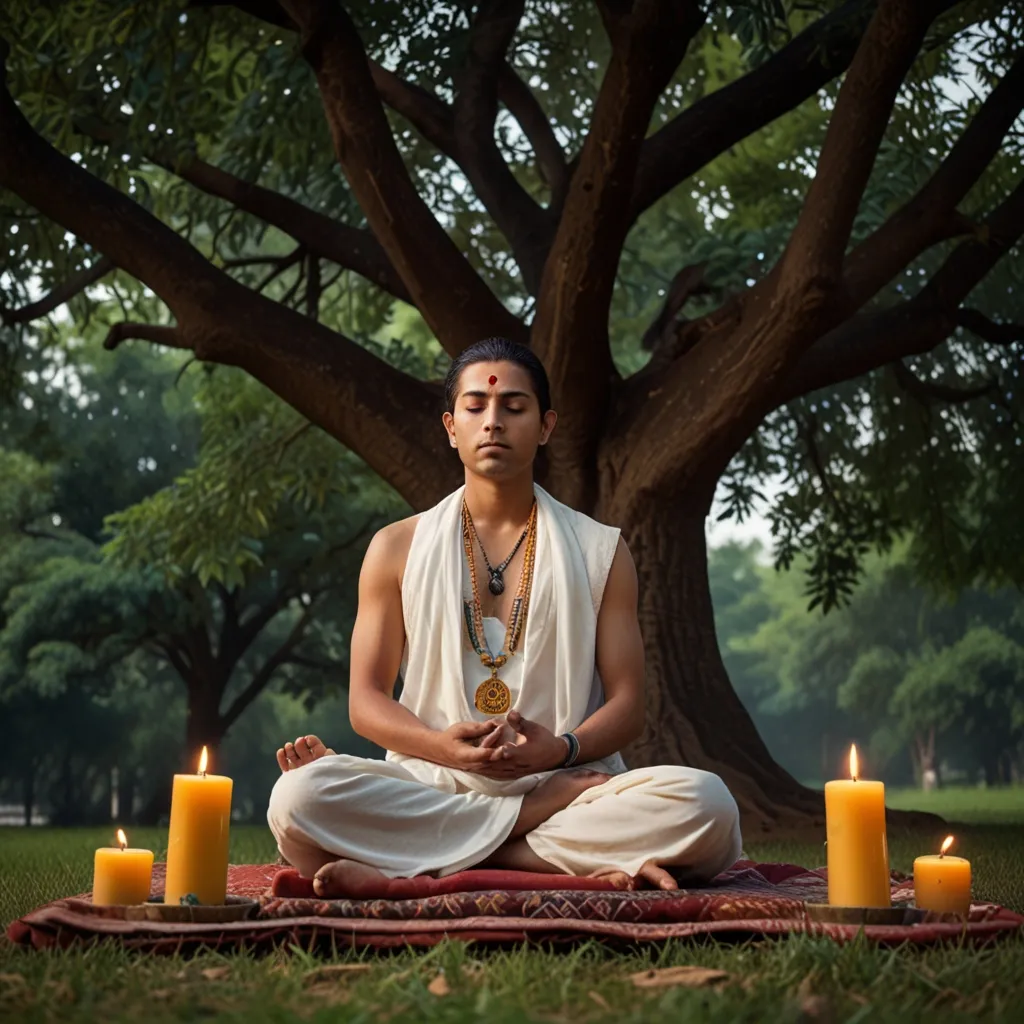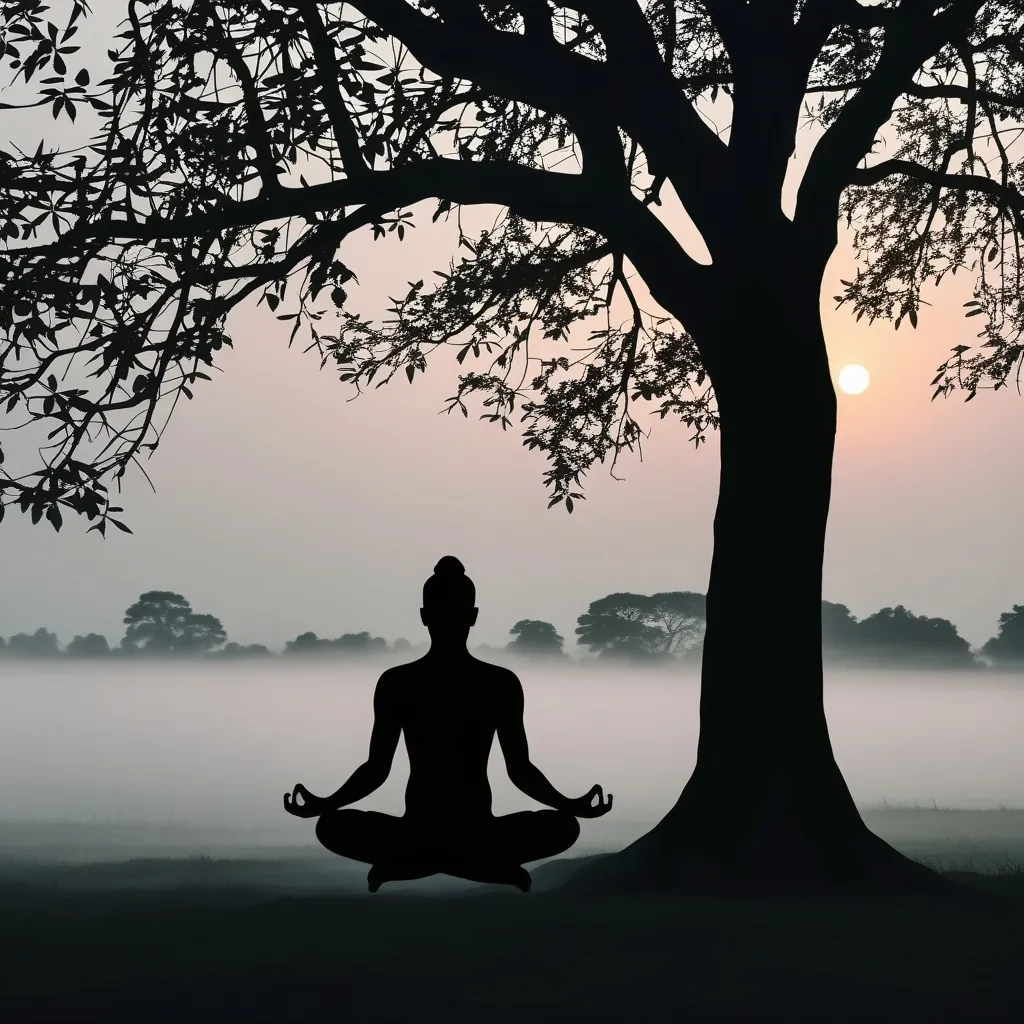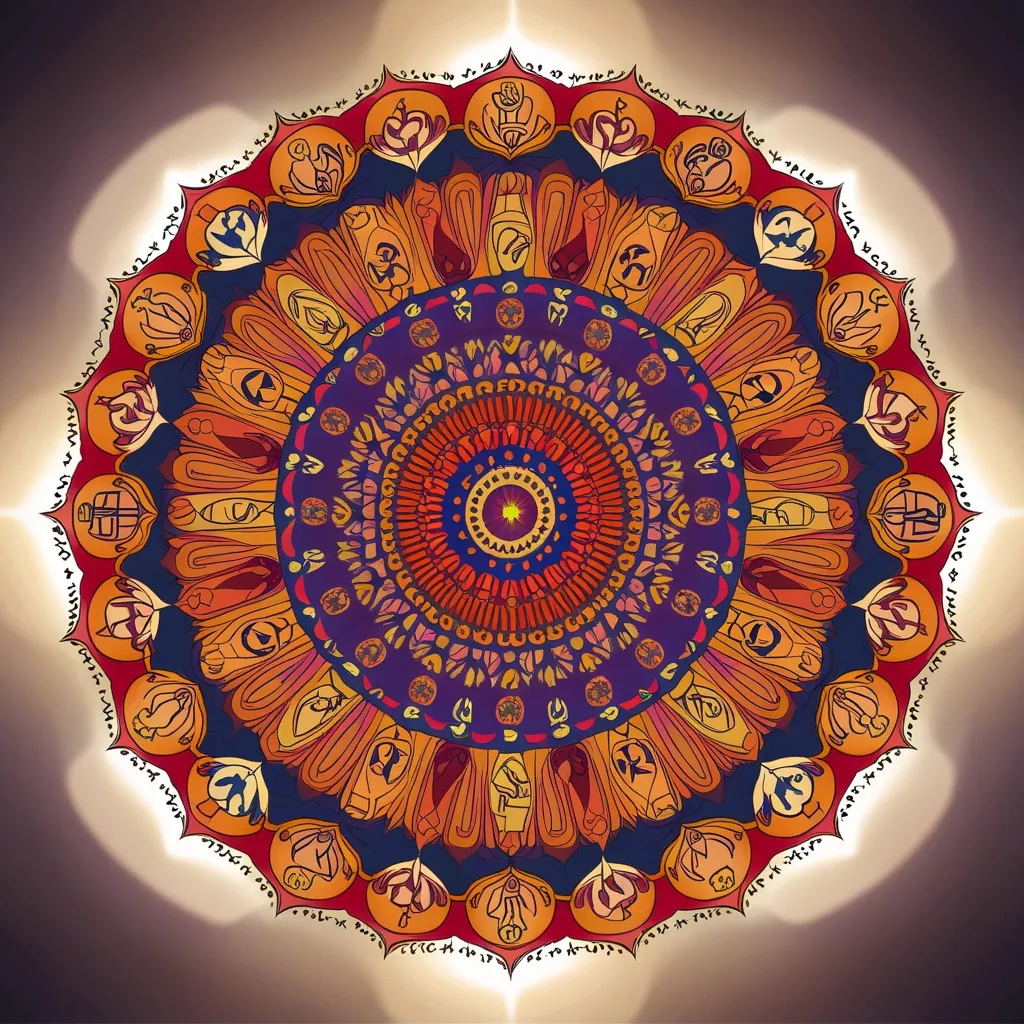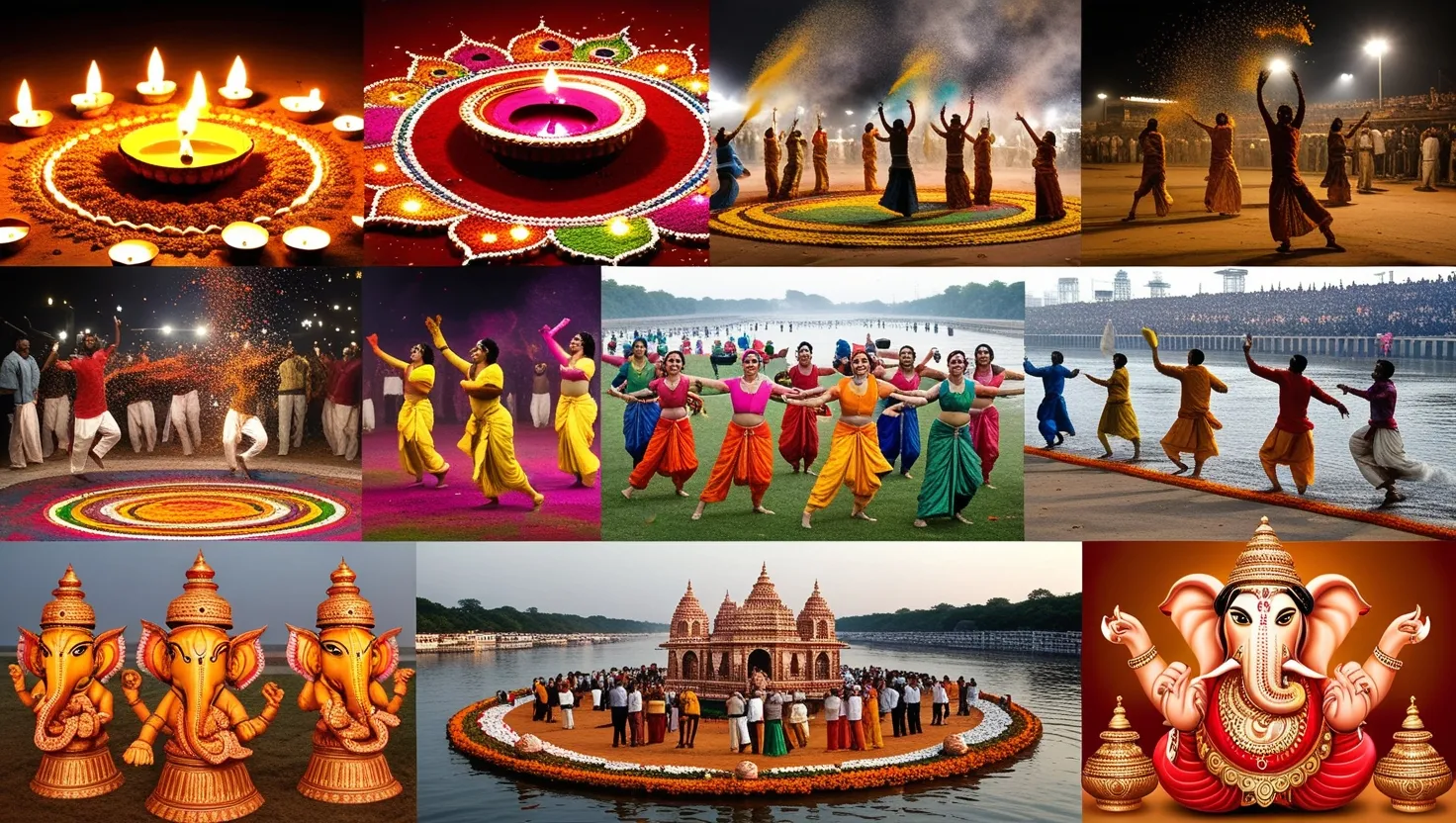In the rich and vibrant tapestry of Hindu mythology, where cosmic battles unravel and intricate narratives come to life, two groups have always stood apart: the Devas and the Asuras. Picture them as two sides of the same cosmic coin, each filled with characters that breathe lessons and insights into human nature and the relentless chase between good and evil. These aren’t just tales from the past; they’re blueprints for understanding the balances and imbalances we face every day.
Both Devas and Asuras share a common ancestry, descended from the sage Kashyapa, yet they differ strikingly in disposition and destiny. The Devas, children of Aditi, are rightly revered as divine champions of virtue, light, and all things good. They exemplify order, wisdom, and beauty, with Indra—the rain god and king of the heavens—leading this celestial force. Indra, along with Varuna, the cosmic justice keeper, and Agni, the fiery mediator between gods and humans, constructs a pantheon dedicated to upholding righteousness.
In stark contrast, the Asuras, the progeny of Diti, navigate the shadowy waters of desire, ego, and ambition. It’s fascinating to see how these characters, from the mighty Ravana with his formidable ten heads to the generous yet outwitted Mahabali, consistently reflect traits of chaos, greed, and the occasional audacity to challenge cosmic order. Their narratives underscore the disruptive elements they represent, and yet, there’s something undeniably riveting about their tenacity and strength.
Across countless tales and epics, the Devas and Asuras engage in perpetual battle—a mythical depiction of the inner clash we endure between light and darkness, wisdom and ignorance. These stories provide an allegorical framework for the human condition, where every individual might experience an internal Deva-Asura conflict—struggles that drive a quest for self-awareness and enlightenment. The Asuras’ ambition to topple the Devas from their heavenly perch echoes the ongoing internal dialogue between virtuous inclinations and selfish tendencies.
But delve deeper beyond the literal narratives, and a profound symbolic undercurrent emerges. The Devas and Asuras transcend their mythological personas to serve as archetypes illuminating different facets of the human psyche. Devas embody ideals of selflessness, compassion, and humility—qualities that anyone striving for spiritual maturity would reckon with. Meanwhile, the Asuras, with their depiction of ego and greed, remind us of the shadows lurking within our consciousness. The recognition of these traits becomes a stepping stone toward self-betterment and inner equilibrium.
Interestingly, Hindu mythology doesn’t cast the Asuras as wholly malevolent entities. Their intelligence, coupled with an endless quest for knowledge, situates them as necessary forces challenging the status quo. They ensure dynamism in a universe bound by cosmic laws, showing how balance and counterbalance are essential even in chaos.
This cosmic dance of Discordia and Concordia flows seamlessly into the practical world, teaching us essential truths. The Devas and Asuras, through their eternal struggle, mirror the dualistic nature of life. There’s an inherent call to embrace both light and darkness, joy and sorrow, victory and defeat, to attain holistic wisdom. The Asuras, in all their complexity, nudge towards self-awareness, urging a persistent re-evaluation of our flaws and a conscious effort to transform them into strengths.
The ancient tales also speak of harmony—an often elusive yet attainable goal through understanding. Instead of waging an endless mental war against our inner Asuras, why not channel their formidable qualities into productive avenues? Just as the Devas aim to uplift and protect, drawing lessons from the Asuras’ determination can push one to conquer life’s challenges.
The influence of these age-old narratives extends beyond spiritual teachings, penetrating the cultural and moral fabric of society. Festivals like Dussehra stand as living testaments to these stories, celebrating the triumph of good through the symbolic act of burning Ravana’s effigy. This act reaffirms the unwavering commitment to righteousness, highlighting how the battle between virtue and vice is ageless, ever relevant.
Shifting gears to a modern perspective, the struggle between Devas and Asuras mirrors psychological battles waged within us. The Devas resonate with the higher self—the part reaching for moral high ground and virtues—whereas the Asuras symbolize primal urges and unbridled desires. This metaphorical conflict is a shared human experience, reflecting the tension between conscious intentions and subconscious desires.
Recognizing this within ourselves provides a roadmap for navigating personal challenges. It encourages a balance within our psychological landscape, fostering growth towards a more harmonious existence. Embracing both the virtuous and complex aspects of our nature becomes not just a choice, but a necessity for mental health and spiritual growth.
In day-to-day decisions, acknowledging the Devas and Asuras within can be a guiding light. With each choice, there’s the potential to lean towards selflessness akin to the Devas, or succumb to the self-serving pull of the Asuras. This conscious reflection nurtures compassion and leads to better interactions with others, encouraging a path of personal development.
The tales persistently emphasize self-awareness, a tool essential for navigating life’s multifaceted landscapes. Confronting personal flaws—much like grappling with the Asuras—becomes a journey of transforming negativity into positive endeavors. This voyage is not about annihilating inner demons but understanding them, learning, and channeling their energy constructively.
The difference between Devas and Asuras goes beyond the dichotomy of good and evil; it explores profound aspects of human existence and the never-ending quest to find balance. Through examining these celestial beings, we gain insights into our own lives, navigating towards self-discovery and enlightenment. By welcoming both the light and shadow within, we not only achieve personal harmony but contribute to the larger, cosmic equilibrium. The stories of Devas and Asuras—as much tales of cosmic drama as guides for life—continue to inspire and resonate, inviting reflection and growth, one myth at a time.
